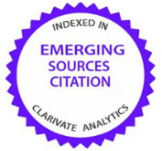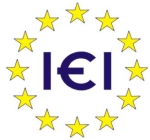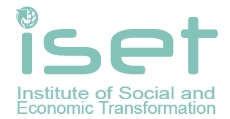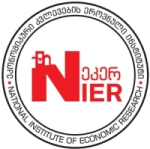Rational nature use of recreational management subjects on the basis of inclusive
Abstract
Introduction. The existing state of the use of natural resources by recreational management subjects showed problems in the legislative framework regarding methodical explanations of the calculation of rental payments for extraction and use of recreation resources of the recreation management subjects have been identified. The directions of management of the recreation management subjects with attraction of recreational resources on the basis of an inclusive approach are offered. Tax liabilities of the recreation management subjects using natural resources fall into the state budget, and they have to local with them further provision in the form of privileges for improving the ecological situation of recreational and tourist territory.
Aim and tasks. The purpose of the article is to provide suggestions for improving management in the field of recreation and tourist use of nature, for example, the use of natural resources of the recreation management subjects on the basis of inclusive. The goal is to fulfill the following tasks: to generalize the existing state of management in the field of the recreation management subjects; provide suggestions on how to improve the management of recreation management subjects, which use recreation resources on an inclusive basis.
Results. The article substantiates the necessity of administrative management in the recreational and tourist nature management on the basis of inclusive, namely, it is necessary to transfer the rights of state control over the extraction of medical resources to the local level, to improve the system of fiscal and tax control over the recreation management subjects with using recreation resources, etc. Recommendations of improvement financial regulation due to attraction of private entrepreneurship in compliance with requirements of environmental quality standards, standards of environmental impact, technological standards; product quality standards; environmental certification, etc. It is proved that the distribution of taxes from economic activity should come not only to the state budget, but also to the local. At the same time, taxes that come to the local budget should be used as subsidies to improve the ecological state of the same territory.
Conclusions. The general conclusion is that integrated management of recreational resources and the recreational management subjects should provide implementation horizontal functions that are specific to the type of administrative activity that affects the using by recreational management subjects national natural resources of various forms of ownership. Need a clear economic justification and calculation of tax and rent income from the recreational management subjects using of natural resources. So it is necessary to amend the calculation of rent payments for the use of medical resources to increase them and prescribe methodical recommendations for their determination. It have to ensure simultaneous, common, in one economic-ecological plane for all administrative subjects horizontal and vertical branches of compliance with the principles of inclusiveness in nature management.
Keywords:
recreational management subjects, administrative management, inclusiveReferences
2. Velichko V.V., Beketova O.M., (2013). Organization of recreation services. Harkiv: HNUMG [in Ukrainian]
3. Geiz V.M., Оstashko T.O., Shunkaryk L.V. (2014). Assessment of the impact of the Association Agreement / FTA between Ukraine and the EU on the Ukrainian economy. Retrieved from: ief.org.ua/docs/sr/282.pdf [in Ukrainian]
4. Martiienko А.І. (2011). Theoretical basis of the development of relations of ownership of natural resources. Odessa: IMPEERNASU [in Ukrainian]
5. Danilishin B.M. (2003) .Natural resource rent and rental policy in Ukraine. Ekonomika Ukrainu, 4, 4–11 [in Russian]
6. Samans R., Blanke J., Drzeniek Hanouz M. (2017). The Inclusive Growth and Development Report. World Economic Forum: Geneva, 2017..
7. Ranieri R., Ramos R. A. (2013). Inclusive Growth: Building up a Concept. International Policy Centre for Inclusive Growth United Nations Development Programme.
8. Environment (2018). The World Bank in Europe and Central Asia. Retrieved from https://data.worldbank.org.
9. Central Bureau of Statistics of Israel (2018). Retrieved from: http://cbs.gov.il [in Hebrew]
10. Economic of Israel (2017). Retrieved from: http://cbs.gov.il [in Hebrew]
11. Tax Code of Ukraine (2018). Retrieved from : https://zakon.help/law/2755-VI [in Ukrainian]
12. Chemikal le-Israel signed a salt collection contract to save Dead Sea hotels (2018). Retrieved from: http://newsru.co.il/finance/ [in Hebrew]
13. The State Statistics Service of Ukraine (2018). National accounts. Retrieved from. Retrieved from: http://www.ukrstat.gov.ua [in Ukrainian]
14. Mineral resources of Ukraine (2018). Retrieved from: www/geoinf.kiev.ua [in Ukrainian]
15. Center for the State Cadastre (2018). Retrieved from: http://kurort.gov.ua/index.php/uk/derzhavnij-kadastr [in Ukrainian]
16. Consolidated Budget of Ukraine (2018). Retrieved from: https://index.minfin.com.ua/ua/finance/budget [in Ukrainian]

This work is licensed under a Creative Commons Attribution-NonCommercial 4.0 International License.
If the article is accepted for publication in the journal «Economics. Ecology. Socium» the author must sign an agreementon transfer of copyright. The agreement is sent to the postal (original) or e-mail address (scanned copy) of the journal editions.






















